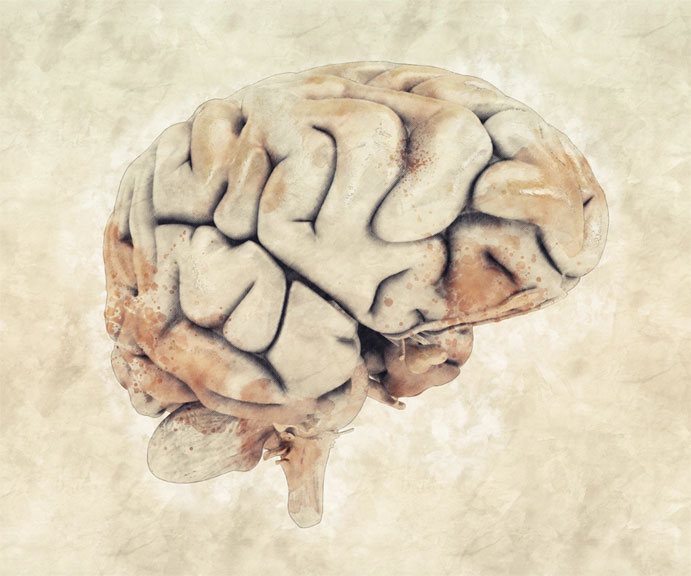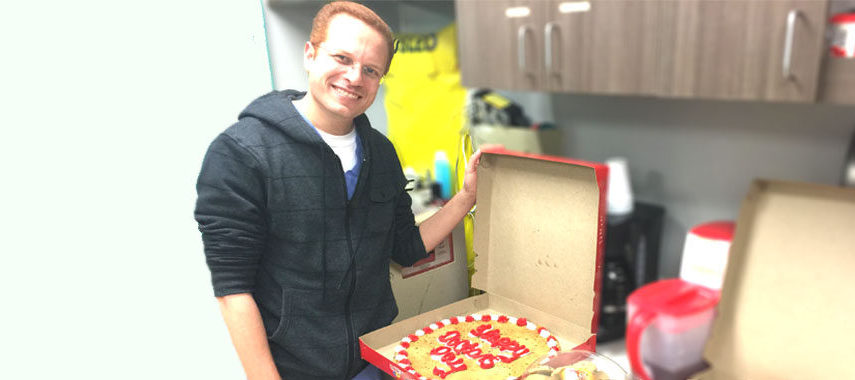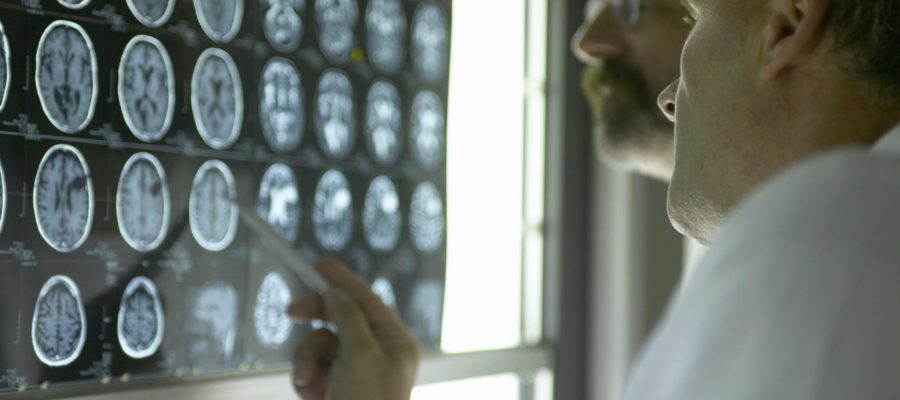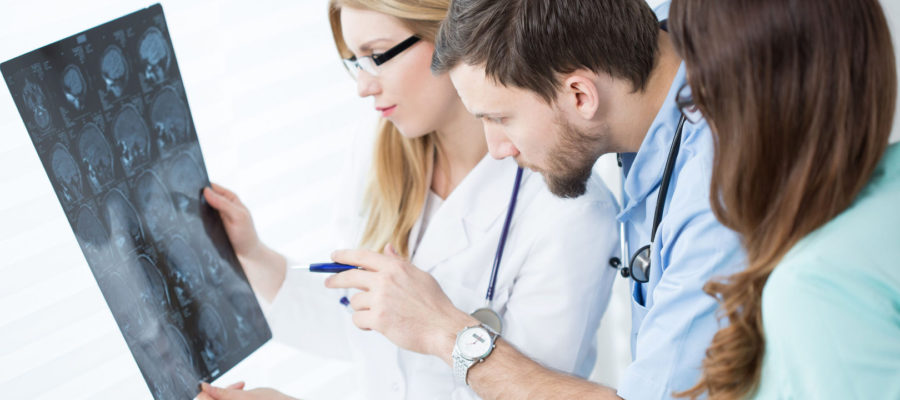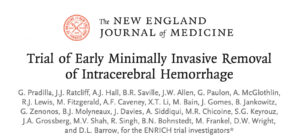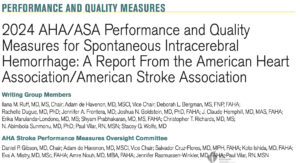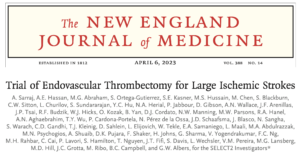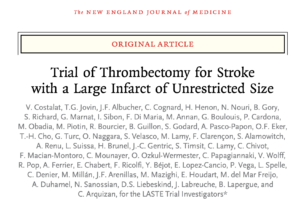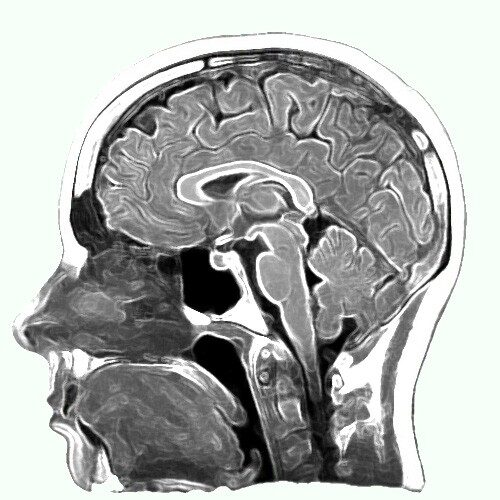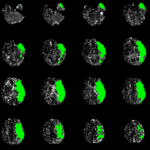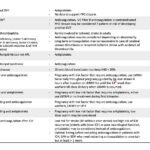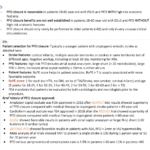Note Templates
A collection of the most comprehensive templates for the common neurological diagnoses.
Basic Neuroscience
Understanding the basics of neuroscience is the mainstay for good clinician. Here you will find summaries for the basic neuroscience and their clinical correlations.
Clinical Neurology
Residency is the most busy period in our life. Here is a collection of powerfull resources to save you time and make your life easier!
Stroke Clinical Trials Section
Acute Stroke Treatment
All relevant thrombolysis and thrombectomy clinical trials; tPA, TNK, LVO, DeVO/MeVO, Skip thrombolysis, expanding IVT window, expanding MVT window etc

Ischemic Stroke Prevention
Trials investigating antiplatelets & anticoagulants for stroke prevention, statins, management of dissection, heart failure, Afib, cardiac thrombus etc
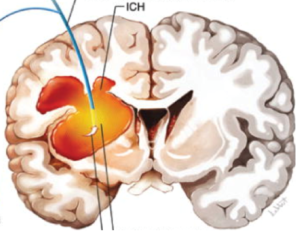
Hemorrhagic Stroke Trials
Intracerebral and subarachnoid hemorrhage clinical trials
Recent Clinical Trials
Neuro-Pharma
Fampridine (Ampyra)
Partially restores the saltatory conduction in demylinated fibers by blocking voltage-dependent potassium channels (present in perinodal myelinated segments), limiting conduction to the Na channels at the nodes of Ranvier.Neuro-Pharma
Ocrelizumab
Anti-CD20 medication was approved by FDA on March 28 for both RRMS and PPMS to be the latest disease modifying medication for multiple sclerosis patients. For more details, visit Neuro-PharmNeurological Triads
Delirium Triad
Triad of agitation, hallucinations and fluctuation of consciousness are characteristic of deliriumSyndrome
Orbital Pseudotumor
Also called idiopathic orbital inflammation, an inflammatory process involving one or more of the extra ocular muscles. Usually responds to steroids. You will need to differentiate it from Tolosa-Hunt and from thyroid orbitopathy.
Neuro-Anatmoy
Hemineglect, Why usually left?
Superior parietal lobule on right side receives inputs from sensory areas from both sides of the brain, while on left side receives input from adjacent left sensory area only. So, right side of body is bilaterally represented while left side is represented only in right side.Neuro-Pharma
Fingolimod
a sphingosine-1 phosphate-receptor subtypes 1 & 3 modulator. Subtype 1 sequestrates lymphocyte lymph nodes. Subtype 3 reduces heart rate and prolongs the PR interval. The cardiac effects of fingolimod are maximal after the first dose but persist for about 14 days.Review Article
Differentiating lower motor neuron syndromes
Syndrome
Capsular Warning Syndrome
Recurrent stereotypical episodes hemiparesis due to ischemia from occluded small penetrating artery. Usually seen with anterior choroidal artery TIA or infarcts.
Neurological Triads
DppX Triad
Triad of GI symptoms (diarrhea-weight loss) followed by cognitive dysfunction then CNS excitability (hyperekplexia, myoclonus, seizures) over a few months period. .Syndrome
Tapia's Syndrome
At some point you may be consulted for a unilateral hypoglossal palsy after surgery manifesting with tongue paralysis and atrophy. Tapia syndrome is caused by hypoglossal nerve compression from the cuff of the endotracheal tube, resulting in hypoglossal and sometimes recurrent laryngeal palsy.
Reverse Ptosis Sign
Ptosis can have different causes, however with Horner syndrome there will be associated "Reverse Ptosis" which is mild elevation of the lower eyelid, making the palpebral fissure narrower.
Neuro-Pharma
Droxidopa (Northera)
A prodrug for norepinephrine that can cross blood brain barrier. It restores the depleted levels of norepinephrine in both PNS and CNS in patients with nOH (neurogenic orthostatic hypotension).Neuro-Anatmoy
Nucleus basalis of Meynert
Located in basal forebrain, principal site for brain synthesis of Ach. Sends widespread projections to neocortex, lesion would cause marked decrease in mental capacity and learning as seen in Alzheimer.Neurological Triads
Gradenigo Triad
A complication of mastoiditis with spread on infection to petrous apex: triad of persistent ear discharge, retro-orbital pain (1st division of trigeminal) and 6th nerve palsy.Neuro-Pharma
Safinamide (Xadago)
Xadago (safinamide) is the latest MAO-B agent for Parkinson's disease. It is unique that it reduces Off time and improves On time without dyskinesia. More details in Neuro-Pharm page.Syndrome
IgG4 Related-disease
A systemic disease with extensive IgG4 plasma cell proliferation and lymphocytic infiltration of various organs. For us in neurology, it can cause hypertrophic pachymeningitis. Diagnosis is usually difficult since IgG4 level is elevated in only 50% of patients and biopsy is the gold standard.
Syndrome
Limb Shaking TIA
Syndrome of limb shaking or stiffness due to cerebral hypoperfusion. Usually associated with large artery stenosis or chronic occlusion. May mimic epilepsy but EEG will be normal.
Neurological Triads
Wernicke’s Encephalopathy Triad
Triad of Opthalmoplegia, Ataxia & Confusion. MRI will show signal hyperintensity in 3 locations (mamillary bodies, medial thalami & periaquiductal gray matterSign
Babiniski Hemifacial spasm sign
In patients with hemifacial spasm due to peripheral VII cranial nerve lesion, when they close their eyes there is paradoxical elevation of the ipsilateral eyebrow (contraction of frontalis muscle) which can't be produced by patients with somatoform disorders (conversion/factitious)
Neuro-Pharma
Valbenazine (Ingrezza)
The highly selective vesicular monoamine transporter 2 inhibitor valbenazin is the first FDA approved drug for patients with Tardive Dyskinesia as of 4/11/17. The main reported side effects were sedation and QT prolongation.Study
Timed Up & Go test
TUG test is used to evaluate patients with NPH before and after lumbar tapping. A difference of > 5 seconds is a useful measure for predicting success after shunt surgery. The test involves Timing the time the patient needs to get up from a chair, walk 3 meters and come back to his chair.
Neurological Triads
Miller Fischer Triad
Triad of Opthalmoplegia – Ataxia – Areflexia.Syndrome
Alice in Wonderland Syndrome (AIWS)
a rare syndrome with abnormal perception of size and time (metamorphopsia), associated with different lesions affecting parieto-occipital lobes. Encephalitis is the most common cause in children and migraine is more common in adults.
Neurological Triads
Susac Triad
Triad of Encephalopathy (with callosal involvement), branch retinal artery occlusion, hearing loss .Sign
Babiniski's Toe sign Equivalents
You may be surprised to know how many methods have been described to elicit a planter response!, Oppenheimer, Schaeffer, Gordon, Gonda, Rossolimo, Chaddock, Stransky and Krawczyk. Click here for more details!
Sign
Aprosexia
Lack of attention and concentration leading to complains of memory impairment. Patients complain of easy forgetting (short term memory) in spite of normal scores in psychometric tests. Usually caused by anxiety, depression or sleep disturbance.Mobile Apps
Stroke Navigator App
The first mobile application to help physicians decide on acute stroke treatment
You will answer some questions, the application will ask you to get certain imaging studies (CTA, CTP or MRI) then it will tell you if the patient is tPA or thrombectomy candidate!
Stroke treatment was straight forward, with CT and CTA you can decide on tPA and thrombectomy. In 2018, things got more complicated! DAWN, DIFFUSE, EXTEND, WAKEUP and more...
How to get it? Stroke Navigator app is available on App Store
NeuroTrials App
A database for all neurology clinical trials!
With evidence-based medicine is the standard of care, we need clinical trials summary at our finger-tips. This is why NeuroTrial App came to life. Stroke, epilepsy, immunology, neuromuscular and other clinical trials, for free.
Continuously updated database on the fly. You also can contribute!
How to get it? NeuroTrials app is available on App Store
Neurology Reference Handbook 2nd Edition
Access here
About Neurology-Residents:
Among all medicine sub-specialties, neurology is by far the largest and most versatile.
Neurology not only deals with the the most valuable part of our body 'The Brain", it also deals with the largest system in our body. From the brain to the spinal cord and from the the nerve roots to muscles.
The central and peripheral nervous system, its physiology, anatomy, pathology and the continuously evolving neuro-therapeutics made neurology the only medical sub-specialty that requires its own residency training after internship year.
In Neurology-Residents, I tried to collect the most important details that neurology residents will need during their training. In the middle of a busy call, while taking care of stroke and neuroscience ICU patients, the EMR templates will help to save your precious time. While on Child neurology rotation, no need to keep searching the internet for medication dosages, it is all available in one website.
I hope this site gains your respect and admiration.
